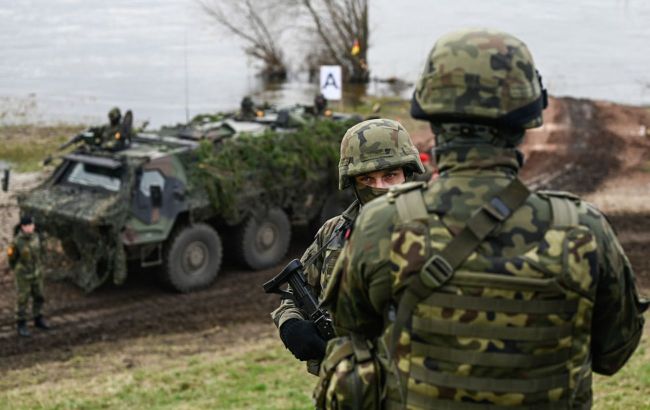Europe considers active response to Russian hybrid attacks - Politico
 Europe considers active measures in response to Russian hybrid attacks (photo: Getty Images)
Europe considers active measures in response to Russian hybrid attacks (photo: Getty Images)
Amid increasing cyberattacks, sabotage, and other forms of hybrid pressure from Russia, European governments and NATO are increasingly discussing the possibility of an active response to Moscow, Politico reports.
The outlet notes that Russian drones and agents continue carrying out attacks across NATO countries, and Europe is doing what only a few years ago seemed unthinkable: beginning to plan active response measures.
Ideas range from joint offensive cyber operations against Russia and faster, more coordinated attribution of hybrid attacks — with immediate identification of Moscow — to sudden NATO-led military exercises.
Latvia's Foreign Minister Baiba Braže said that "the Russians are constantly testing the limits — what is the response, how far can we go?" and added that "a proactive response is needed" and that "it's not talking that sends a signal — it's doing."
Politico recalls that in recent weeks and months, Russian drones have violated the airspace of Poland and Romania, while mysterious drones have disabled airports and military bases across Europe.
Other incidents include GPS jamming, aircraft and ship incursions, as well as an explosion on a key railway line in Poland used to deliver military aid to Ukraine.
"Overall, Europe and the alliance must ask themselves how long we are willing to tolerate this type of hybrid warfare ... (and - ed.) whether we should consider becoming more active ourselves in this area," said Germany's State Secretary for Defense Florian Hahn.
It is reported that hybrid attacks are not new. In recent years, Russia has allegedly sent assassins to the United Kingdom, blown up ammunition depots in Central Europe, attempted to destabilize the EU by financing far-right parties, waged information warfare, and interfered in elections in countries such as Romania and Moldova.
But the scale and frequency of current attacks are unprecedented. The Globsec think tank calculated that from January to July, more than 110 acts of sabotage and attempted attacks occurred in Europe, mainly in Poland and France, carried out by individuals linked to Moscow.
Russian hybrid attacks
A damaged section of railway track was recently discovered in Poland on a key route leading to the Ukrainian border and further across the country. Reports indicated damage to infrastructure near the PKP Mika station in the Życzyn area of Garwolin County, Masovian Voivodeship.
Polish Prime Minister Donald Tusk later confirmed that the tracks on the Warsaw–Lublin route, used to transport aid to Ukraine, had been destroyed as a result of an explosion.
According to Ukraine's Foreign Ministry, this may have been another Russian hybrid attack.
During the night of September 9–10, around 20 Russian drones violated Polish airspace. Some of the UAVs were loaded with explosives.
Recently, unknown drones were spotted circling over one of Belgium's military bases, with the incident occurring twice. Police and the army intelligence launched an investigation.
Earlier, unknown drones were also detected over the Belgian military base in Elsenborn.
Additionally, Belgium's defense company Thales Belgium reported unidentified drones over its facility where 70-mm rockets are produced.

